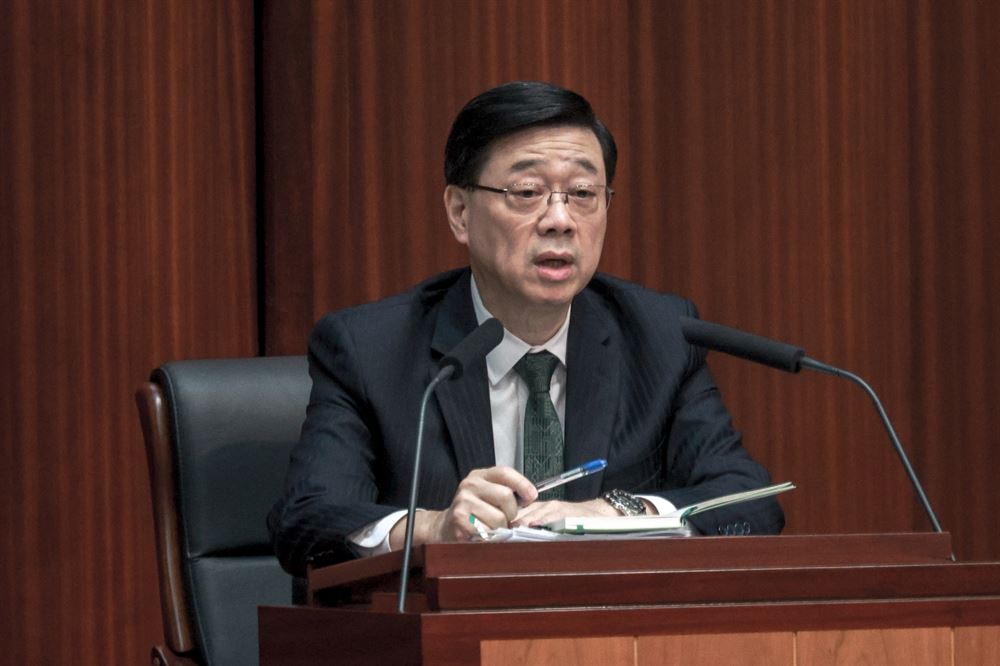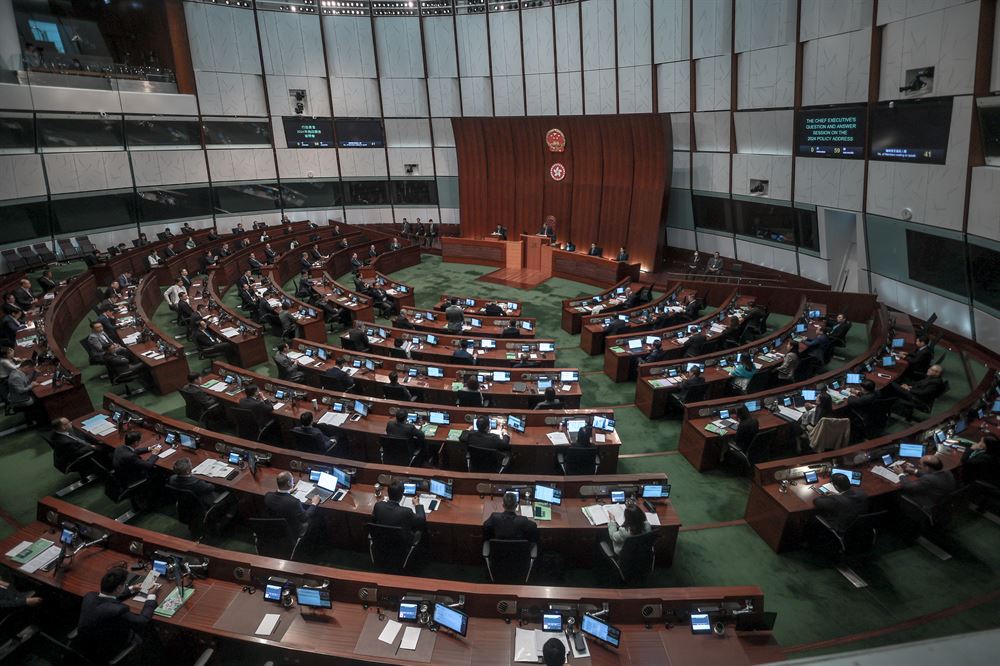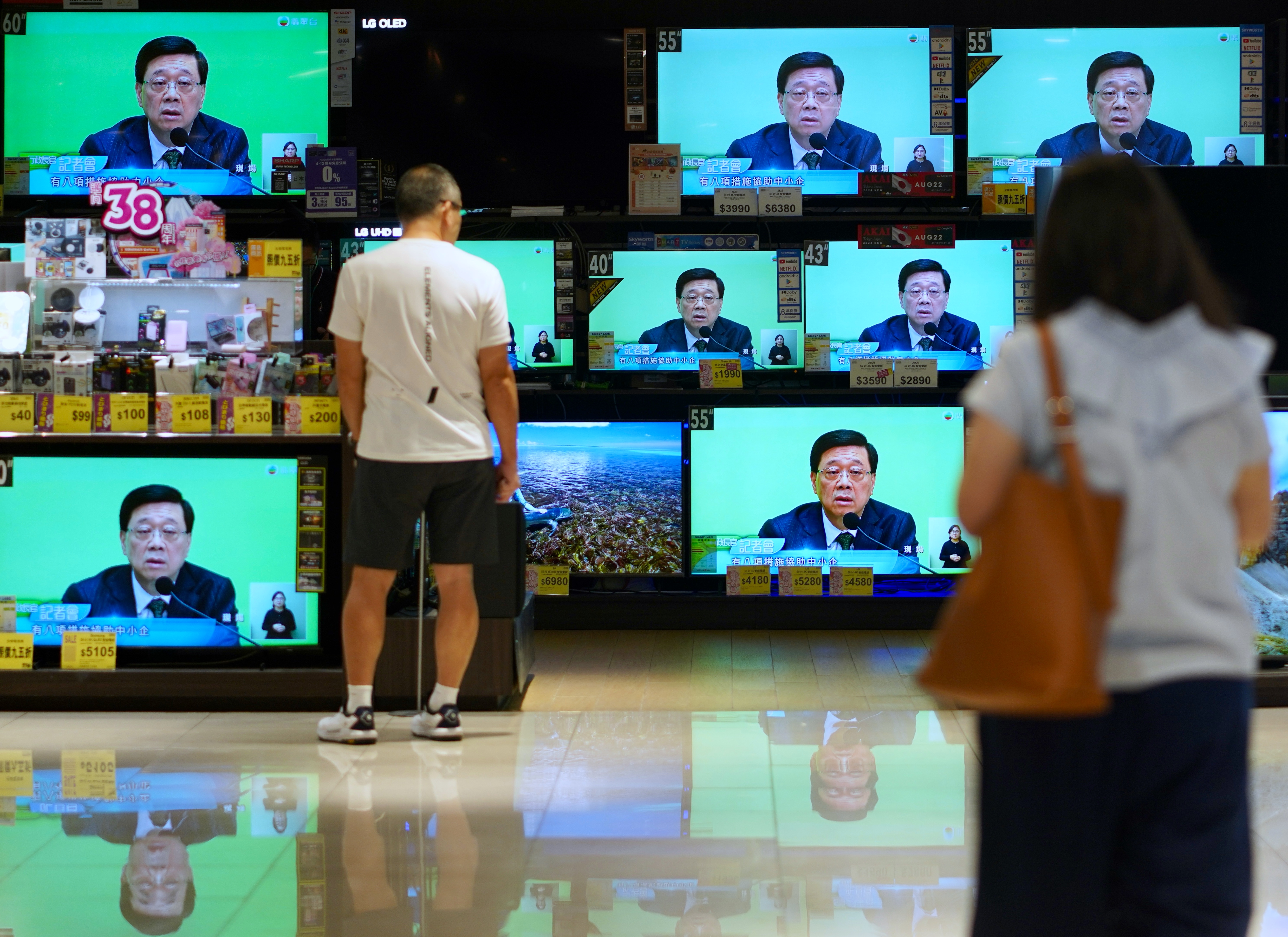
Chief Executive John Lee Ka-chiu called for concerted efforts to advance developments as he expanded on his newly released policy blueprint in areas such as education, housing, and tourism on Thursday.
Lee said reform involves efforts from the whole of society, and the executive and legislative branches need to take a leading role.
Lee made his remarks at a question-and-answer session at the city’s Legislative Council, a day after unveiling his reform-centered policy blueprint highlighting the need to explore new economic growth engines, improve living conditions for residents, and woo capital and talent.
Lawmaker Lillian Kwok Ling-lai — who hailed the initiatives in the blueprint aimed at building the city into a high-caliber talent hub as a “breakthrough” — said that the Hong Kong Diploma of Secondary Education Examination (DSE) can play a role in building the talent hub, and can attract students from the Chinese mainland to come to Hong Kong to take their exams.
Lee said that while the DSE is important, the government mainly hopes to attract those who wish to come to the city to study at universities and post-secondary education establishments, which will also help promote the city.

In his Policy Address, Lee proposed setting up four cross-bureau coordination mechanisms to develop the low-altitude economy, promote the “sliver economy”, develop tourist hotspots, and develop education, technology and talent.
Lawmaker Tan Yueheng, of the business and finance sector, asked the government to roll out measures to address the “aging dividend”, as the city’s population has higher expectations of quality of life for the elderly, and there is an average life expectancy of 85 years old.
Lee said that financial arrangements are being prioritized to enable the elderly to enjoy a comfortable retirement.
ALSO READ: Visionary steps chart a better future for HK
The working group for promoting the “silver economy” will explore more relevant financial products based on the demands of the elderly, he said, adding that some financial products available on the market haven’t been promoted enough, while other products have been developed from the perspective of supply rather than demand.
In a bid to revive the city’s sluggish retail, catering and tourism sectors, Lee said in his Policy Address that he had asked for the central government’s approval to reintroduce multiple-entry endorsements for Shenzhen residents — a facility that was suspended in 2015 — and proposed expanding the “one trip per week” visit endorsements to other mainland cities within the 11-city cluster of the Guangdong-Hong Kong-Macao Greater Bay Area.

Lee said the proposal is currently under discussion. Cities selected to offer the “one trip per week” endorsements should have strong ties and convenient transportation links with Hong Kong, he said, adding that he hopes a decision can be reached soon.
Another highlight of Wednesday’s Policy Address was the proposal to improve the city’s public housing and subsidized housing arrangement — although nothing was proposed specifically to help young people buy homes.
In a radio phone-in session on Thursday morning, a resident suggested that Lee should consider using Mandatory Provident Fund contributions — an employment-based retirement fund — as down payments to enable young people to purchase flats.
In response, Lee said in the radio interview that the MPF is designed to provide retirement protection for residents, but he didn’t rule out the possibility of using the MPF.

As for removing the asset assessment for young people applying for Home Ownership Scheme flats, Lee said he would be concerned that doing so could exacerbate the shortfall in the supply of subsidized sale flats.
Some residents have expressed concerns about the possibility of being forced to move out of their subdivided flats and ending up homeless, as the government plans to legislate banning the rental of subdivided flats that fall short of government’s standards — a move that could drive up rental values.
READ MORE: HK leader shares plan for reforms
Lee, however, said the government does not wish to see anyone homeless and will provide assistance to those in need.
About 50 to 60 percent of residents living in subdivided units qualify or will qualify once they obtain their permanent residency to move into public rental flats, and Basic Housing Units — subdivided flats that have met the government’s standards — are a makeshift measure. The ultimate goal is to increase of the supply of public housing, Lee said.


